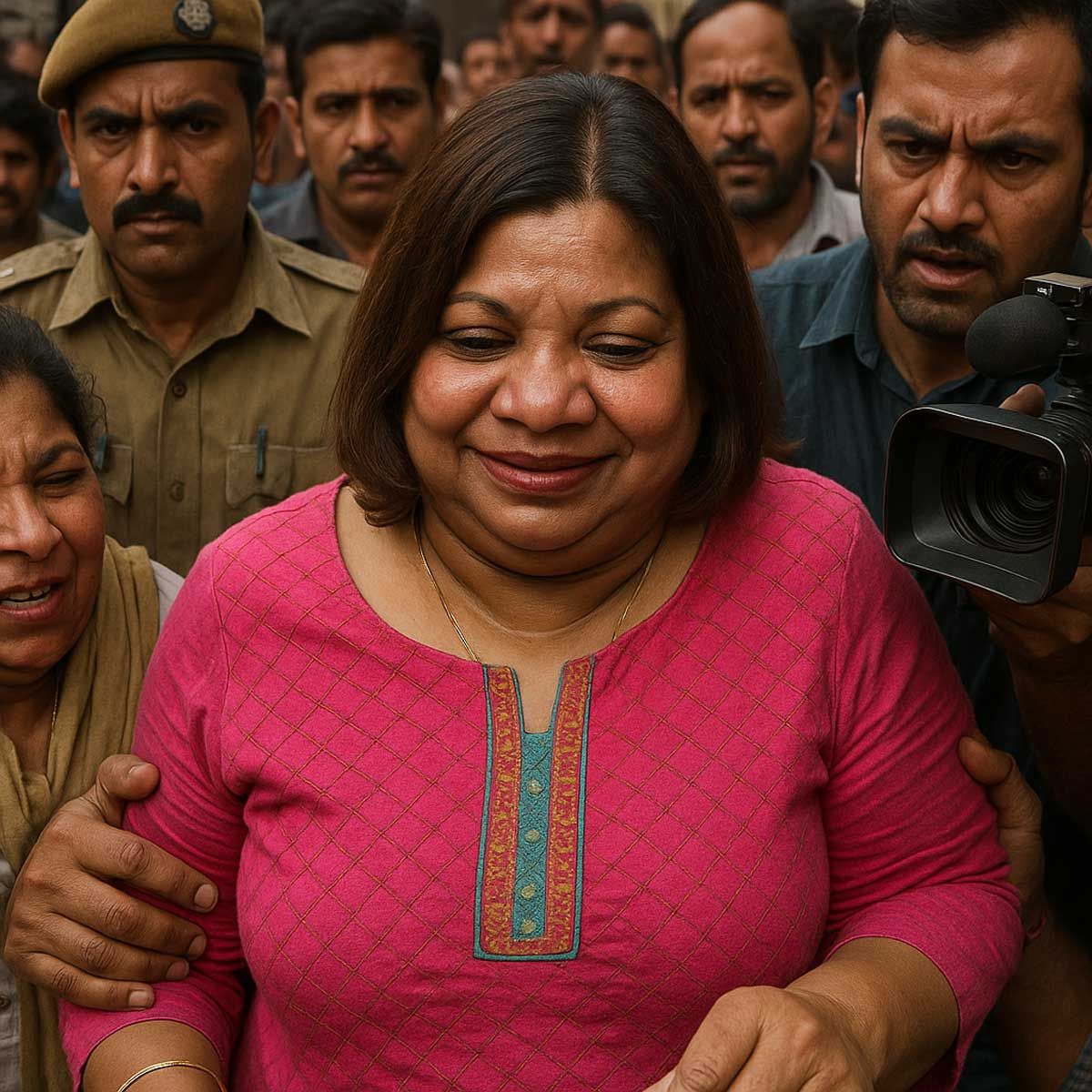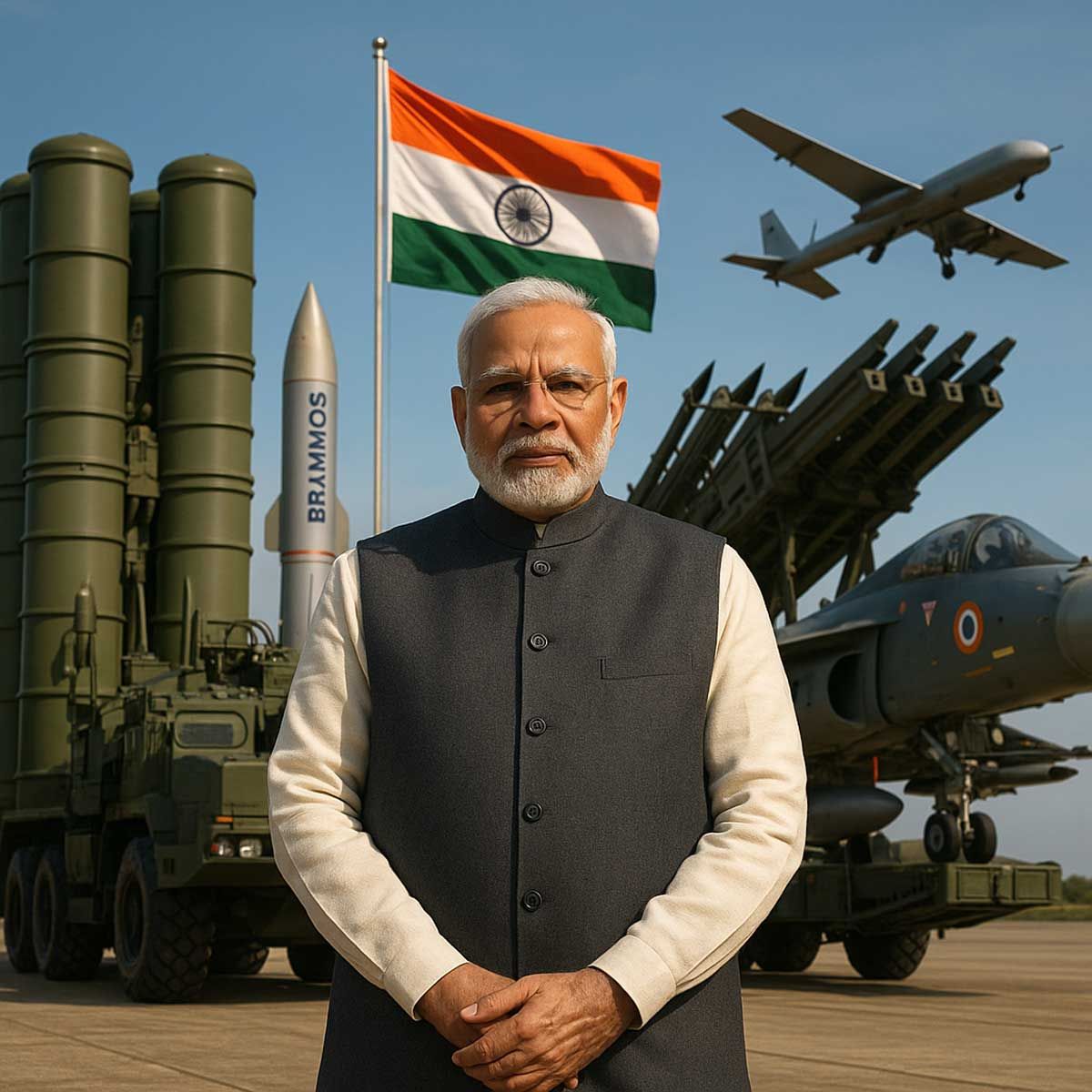More Coverage
Twitter Coverage
Satyaagrah
Written on
Satyaagrah
Written on
Satyaagrah
Written on
Satyaagrah
Written on
Satyaagrah
Written on
JOIN SATYAAGRAH SOCIAL MEDIA
Post 9/11 discrimination and Islamophobia: all labeled as 'Emotional Truths' were actually fabrications, Meet Hasan Minhaj, the ace comedian and 'victim card' player, who rocked the world with harrowing tales in his comedy—tales that, never truly happened
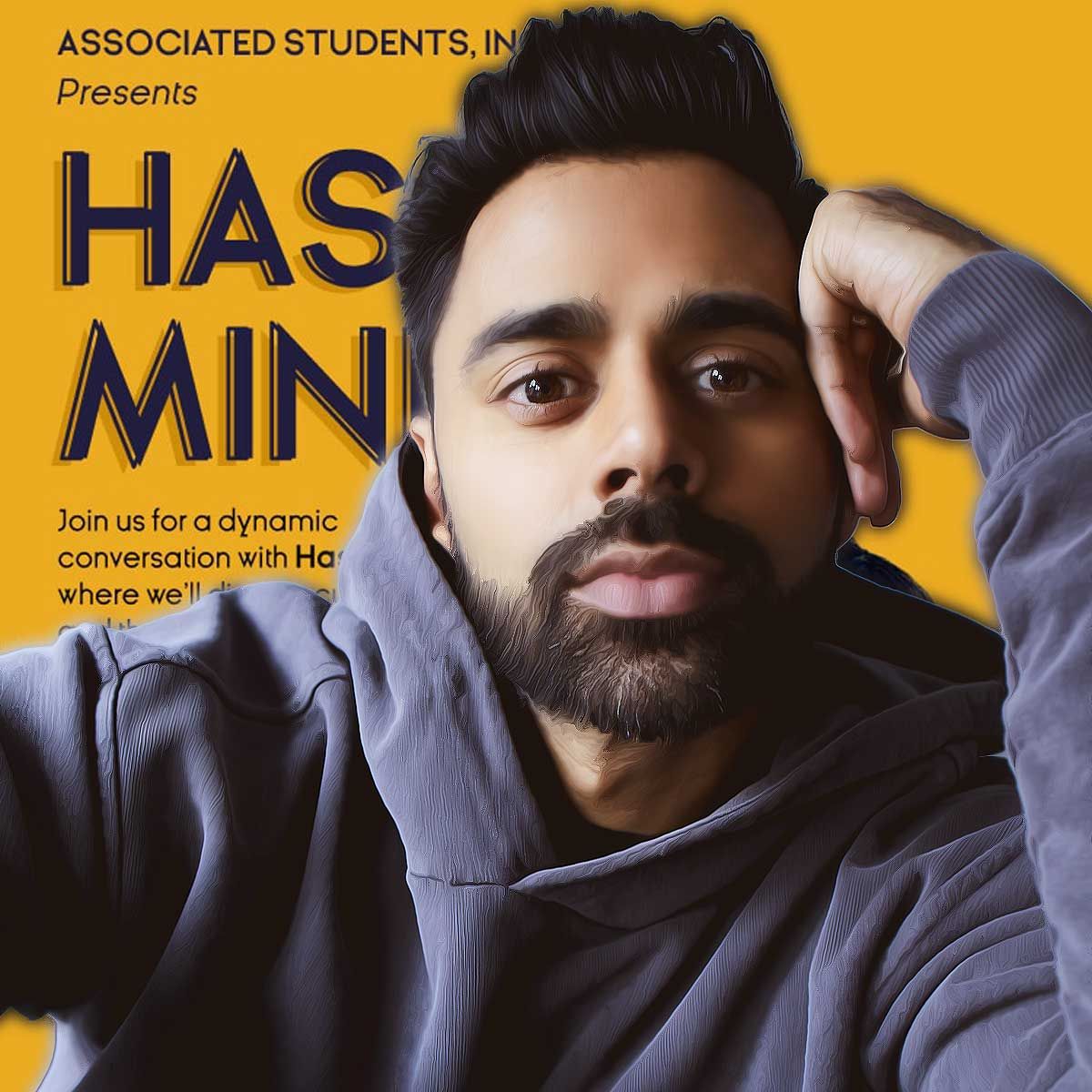
In a world that's increasingly cynical about what it consumes, there's a thirst for authenticity. Comedians, especially, wear the mantle of being society's mirror, reflecting back truths, however hard they may be to swallow. But what happens when this reflection is distorted for a few laughs or, dare we say, a more sinister agenda?
In the grand theater of life, where most of us are mere extras, trying to remember our lines and cues, Hasan Minhaj seems to have bagged the role of the imaginative scriptwriter. He’s the Shakespeare of modern comedy, where every tragedy is self-written, and every character has a twist in their tale. If life gives him lemons, he doesn’t just make lemonade; he spins a story of battling lemon-sized adversities in a world that's out to citrus-shame him. His tales are like those childhood stories where the fish you caught was 'this big', except the fish grows larger every time and somehow turns into a shark. One has to wonder, in Minhaj's world, is reality just a rough draft awaiting his colorful edits?
|
On 15th September, the esteemed New Yorker threw light on the "creative liberties" of comedian Hasan Minhaj. Titled "Hasan Minhaj’s 'Emotional Truths'", the report is a deep dive into the numerous tales of racial harassment Minhaj has claimed to have faced as an Asian/Muslim American. Tales that, as it turns out, might be better suited for a fiction section.
From heart-wrenching stories of the 'Anthrax scare' involving his daughter to the dramatic prom night saga; from a timely rendezvous with the Saudis on the exact day of Jamal Khashoggi's tragic demise to other tales of victimhood - the New Yorker's scrutiny suggests a pattern of fabrication. The curtain falls, the spotlight dims, and the comedian’s tales unravel, especially when Minhaj himself, cornered by the dogged New Yorker journalist, admits to some creative embellishments.
But the story doesn't end there. Clips from a recent podcast have now emerged, wherein fellow American comedians, including Andrew Schulz and Akaash Singh, shed light on Minhaj's "truths". They suggest that Minhaj didn't just reserve his exaggerations for the stage. No, his tales of 'victimhood' followed him offstage, into private conversations, painting him not just as a 'victim', but curiously, a 'hero'.
In the world of comedy, satire is a tool, not a shield. It seems Mr. Minhaj might've missed that memo. After all, in a bid to evoke laughter, or perhaps sympathy, where does one draw the line between artistic liberty and blatant deception? The New Yorker's revelations leave us pondering this fine line.
Minhaj, an Emmy and Peabody Award-winning comedian, boasts of a blend of autobiographical storytelling and social-justice commentary in his comedic endeavors. His narrative, deeply rooted in his experiences as an Asian American and Muslim American, is claimed to represent the struggles and challenges faced by communities in post-9/11 America. However, a closer examination reveals a disturbing pattern of fabrication that underpins his anecdotes.
|
Minhaj’s ascent to fame, marked by his Netflix series "Patriot Act" and Netflix standup specials, has positioned him as a voice of representation in entertainment. His comedic approach heavily leans on harrowing tales of law-enforcement entrapment and personal threats, often resonating with many who see him as an avatar of representation. But herein lies the deceit. A self-admitted concoction of "seventy per cent emotional truth" with a "thirty per cent hyperbole, exaggeration, fiction," Minhaj's narrative is a cauldron of misleading anecdotes brewed with a dash of reality.
In his 2022 Netflix special, "The King’s Jester," Minhaj narrates an episode involving an FBI informant infiltrating his family’s mosque. This story, while captivating, serves as a conduit to exaggerate the perception of threat during the early days of the war on terror. It's disconcerting to realize that Minhaj’s recounting is laced with fabrications, as confirmed by Minhaj himself. This misrepresentation is not an isolated incident but a recurring theme in his narrative. The article also highlights a chilling episode where Minhaj recounts a threatening letter endangering his family. This tale, while evoking sympathy and concern, is revealed to be untrue.
The question that looms large is, does it matter that these incidents didn’t occur as narrated? The answer is a resounding yes. In weaving a tapestry of lies and half-truths, Minhaj is not merely entertaining; he is misleading a populace that often looks to comedians for a dose of truth in a world laden with misinformation.
His narrative, cloaked in humor, subtly shapes public opinion and perpetuates a narrative that, while not entirely accurate, resonates with many. The ethicality of such a practice is questionable. The responsibility that comes with a platform as significant as Minhaj's is immense. His admission of untruths in his narrative not only undermines his credibility but also reflects a flagrant disregard for the essence of truth in a discourse as sensitive as racial and religious discrimination. Minhaj's cavalier approach towards truth in his storytelling underpins a larger issue in the comedic sphere, where the lure of applause and acclaim overshadows the imperative of honesty.
|
As audiences, the allure of Minhaj's narrative is undeniable, but the discernment to sieve the truth from the embellished reality is crucial. In a climate where misinformation spreads like wildfire, the blurred lines between fact and fiction in Minhaj’s comedic narrative are not just misleading; they are dangerous. Hasan Minhaj, in his quest for comedic impact, seems to have crossed this line, misrepresenting facts and concocting stories that, although fictional, are presented under the guise of personal experiences.
The fabrications in Minhaj's narrative begin to unravel as Craig Monteilh, also known as "Brother Eric," discredits Minhaj's recounted story of FBI infiltration. Contrary to Minhaj's tale, Monteilh clarifies that he commenced his work for the FBI on counterterrorism measures in 2006, not in 2002 as Minhaj claims, and his operations were confined to Southern California, debunking the connection to Minhaj's Sacramento locale.
Furthermore, the harrowing tale of an anthrax scare, as narrated by Minhaj, found no corroborative evidence from the New York Police Department or local hospitals. The revelation from Minhaj that this story too was a fabrication, albeit based on a flimsy joke about a powder in a letter, exhibits a stark departure from factual storytelling. Minhaj’s justification of these fabrications as "emotional truth" seems to be a thinly veiled attempt to cover up the misleading nature of his stories.
Minhaj's refusal to clarify these embellishments in subsequent interviews indicates a disregard for factual accuracy, potentially misleading his audience who may be unaware of the fictional nature of his stories. This practice not only compromises the trust between Minhaj and his audience but also undermines the gravity of real issues and experiences that others have genuinely endured.
Moreover, Minhaj's narrative about his attempt to interview Mohammed bin Salman, and his supposed hostile encounter at the Saudi Embassy, further illustrates a pattern of embellishing details to place himself at the center of significant events. These fabricated accounts beg the question: to what extent can comedic license excuse the misrepresentation of facts?
The exploration of emotional truths through comedy is a delicate endeavor that necessitates a balanced approach to ensure that the essence of real issues is not overshadowed by fictional tales. Minhaj's foray into this territory, unfortunately, appears to have veered off into a domain where the narrative supersedes the truth, consequently diluting the impact of the very real issues he seeks to highlight.
As the curtain pulls back further on Hasan Minhaj’s narratives, a consistent pattern of embellishment and fabrication emerges, casting a long shadow on the moral high ground he seemingly occupies on stage. Despite the comedic armor, the transgressions in truth-telling raise fundamental questions about the ethical bounds of comedy, especially when it straddles the line of opinion journalism. One of the glaring misrepresentations revolves around Minhaj’s account of a meeting at the Saudi Embassy, conveniently aligned with the timeline of Jamal Khashoggi’s murder.
This fabrication, as Minhaj admits, was a mere storytelling device to heighten the narrative. But the invention does not stop there. At the Time 100 Gala, Minhaj’s public admonition of Jared Kushner over a fabricated ceremonial seat for an imprisoned Saudi activist serves to accentuate the “emotional truth” but drifts further away from the factual truth.
The discomfort within the comedic community is palpable, as Minhaj’s moralizing posture coupled with fabricated narratives seems to hit a discordant note. While comedy has always enjoyed a certain leeway when it comes to embellishment for comedic effect, the invention of significant details, especially around real people and real events, can leave audiences feeling deceived. The crux of the matter becomes even more pronounced as Minhaj’s projects wade into the waters of opinion journalism, a realm where truth and factual accuracy are the bedrock.
Jon Stewart and John Oliver, though comedic icons have had their share of opinionated takes, yet they have maintained a distance from the journalist tag. Minhaj, on the other hand, has plunged headlong into political conversations, assumingly adopting a stance of a moral arbiter. This position, however, becomes precarious when the narratives are laced with fabrications aimed at proving social points, as opposed to eliciting laughter.
The defense of Minhaj’s fabrications, as provided by some like Ismael Loutfi, hinges on the “element of truth” in comedy. While there might be a kernel of truth in Minhaj’s narratives, the embellishment and amalgamation of facts into a fictional tale veer off the path of honesty, entering a realm where the essence of the real issues might be lost in the dramatic storytelling.
An instance from Minhaj’s past about a suspicious man at the mosque might have left an indelible impression on him, but the transformation of such instances into fictional tales for dramatic effect raises the question of authenticity in the stories narrated.
The real fear experienced during the “Patriot Act” era, as corroborated by others, does provide a backdrop for Minhaj’s narratives. Yet, the fabrication of threatening tweets and the anthrax story, as confessed by Minhaj, present a scenario where the line between fact and fiction is not just blurred but seemingly erased.
|
As Minhaj navigates the comedic landscape with a blend of real issues and fabricated narratives, the moral weight of the fibs told on stage comes under scrutiny. The quest for comedic impact, it appears, has led to a journey where the truth has become a casualty, leaving the audience in a complex dance of discerning the real from the reel.
Hasan Minhaj's “Patriot Act” was a spectacle of comedic finesse blended with a dash of cultural introspection, especially spotlighting the South Asian diaspora. However, as the curtains draw on its behind-the-scenes reality, a pattern of distortion and dissatisfaction emerges, painting a less glamorous picture of the acclaimed show. The grievances voiced by some former female employees, leading to threatened litigation against Netflix and the production company, unveil a disconcerting underbelly of gender discrimination and sex-based harassment allegations, casting a shadow over the show's acclaimed inclusivity.
Minhaj's dismissive attitude towards the rigorous fact-checking process, as narrated by former employees, unveils a concerning trait for someone helming a show that ventures into realms of socio-political commentary. The sidelining of female researchers during critical rewrites not only showcases a gender-biased environment but also hints at a narrative more inclined towards crafting a compelling story rather than adhering to factual accuracy.
The emblematic story of Minhaj’s humiliating prom night rejection, as narrated in his Netflix special “Homecoming King”, has been a hallmark of his portrayal as an immigrant facing racial prejudice. Yet, the discrepancy between Minhaj's narrated ordeal and the woman's version of events reveals a distorted reality crafted for dramatic effect rather than a truthful recounting. The blurring of real identities leading to online threats against the woman and her family showcases the real-world repercussions of such fabricated narratives.
The moral spectrum of storytelling, especially comedic storytelling, comes into question when the essence of truth is overshadowed by the allure of an engaging narrative. The instances of Steve Rannazzisi’s fabricated 9/11 narrative and Mike Daisey’s embellished account of Apple’s Foxconn plant in China serve as stark reminders of the ethical dilemma faced by storytellers.
|
Marc Maron’s conversation with Minhaj highlights the fine line between crafting a compelling narrative and maintaining a respectful acknowledgment of the real individuals and events involved. The essence of respect, honesty, and accountability seems to be in a tug-of-war with the compelling allure of dramatic storytelling.
Minhaj’s stance on prioritizing “emotional truth” over factual accuracy reveals a troubling disregard for the ethical responsibility bestowed upon individuals with a platform as significant as his. His nonchalant dismissal of the potentially compromised position his fabrications could put him in, should he host “The Daily Show”, reflects a concerning lack of self-awareness and accountability.
In a world where misinformation can spread like wildfire, the ethical onus on public figures, especially those delving into socio-political commentary, to adhere to factual truth is not just a moral obligation but a societal necessity. The dramatic allure of fabricated narratives might offer a temporary engagement, but the long-term impact on public perception and discourse could be significantly detrimental.
Hasan Minhaj Told Akaash The FAKE Prom Story 10 YEARS AGO?
In the world of comedy, where roasts and retorts are the bread and butter, Andrew Schulz didn't miss the opportunity to serve up a zinger in response to Hasan Minhaj's defense of his "70% emotional truth" tales. Launching the podcast with a cheeky quip, Schulz took aim at Minhaj's narrative liberties, jesting, "How do we even know Hasan Minhaj is 'Minhaj'?". Drawing on Minhaj's own words, Schulz playfully speculated that perhaps even Minhaj's name is "70% emotionally true."
In the laughter-filled arena of stand-up, this tongue-in-cheek jab underscores a larger debate: where does one draw the line between comedic embellishment and outright fabrication? Schulz's witty remark not only brings this question to the fore but also highlights the ripple effect of Minhaj's "emotional truth" defense within the comedic community. While humor thrives on exaggeration and hyperbole, Schulz's satirical comment serves as a poignant reminder of the importance of authenticity, even in comedy.
Andrew Schulz took no prisoners in discussing Hasan Minhaj's "emotional truths". Drawing attention to a revealing article from the New Yorker, Schulz humorously pointed out the potential elasticity of Minhaj's stories. With a smirk, he quipped, "Is Minhaj also going to regale us with adventures of rowing with a tiger, 'Life of Pi' style? Or perhaps an 'Indian roots' adaptation of 'Slumdog Millionaire'?"
But beneath the light-hearted jabs, Schulz's critique took a deeper tone. He recognized the role of comics in occasionally amplifying tales for comedic impact. However, he highlighted a crucial distinction, stating, “It's not that Minhaj was using these exaggerations as punch lines. Rather, he used them to solicit sympathy, only for audiences to discover that these events never truly transpired.”
Akaash Singh, joining the conversation, further emphasized the real-world ramifications of Minhaj's stories. Referring specifically to Minhaj's prom night tale, Singh lamented how such misleading anecdotes could inadvertently perpetuate stereotypes and have adverse effects on real people's lives. The debate on the line between comedy and authenticity continues, but for comedians like Schulz and Singh, the message is clear: while humor is subjective, honesty should be absolute.
Akaash Singh weighed in on the conversation, pointing to Minhaj's oft-repeated prom night story, one that paints a melancholic picture of racial prejudice. Akaash, with a hint of sarcasm dripping from his words, described, “So, here's Minhaj's version: he was all set to go to prom with this white girl. He reaches her doorstep, corsage in hand, only to find her with another fellow. A white fellow, to be exact. Why? Because her parents, apparently, weren't too fond of Minhaj's Indian background. Quite the heart-wrenching narrative, isn't it?”
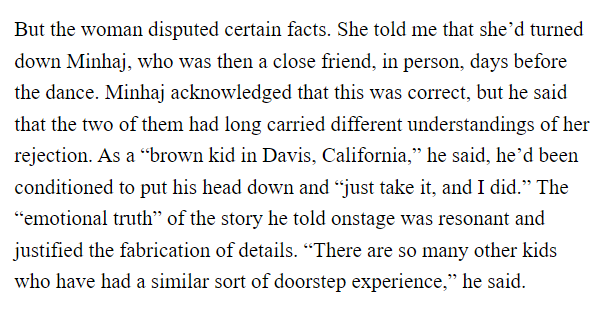 |
But, as Akaash highlighted, there’s a twist in this tale. The lady in question later came forward and threw a wrench into Minhaj’s carefully crafted story. “Now, she clarifies that Minhaj popped the prom question just a few days prior, to which she declined. But here's the kicker,” Akaash continued with a smirk, “She debunked any claims of her being racist against Minhaj because of his Indian roots. After all, she herself was married to an Indian. Talk about a plot twist!”
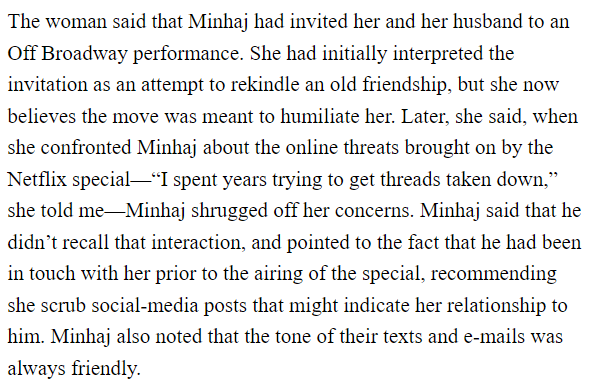 |
Andrew Schulz, in his characteristic blend of wit and irony, remarked, “Imagine carrying around that level of confidence. You know, the one where if someone isn't a fan, they must be, without a doubt, racist. It's like saying the only logical reason someone couldn't possibly adore me is because they have some inherent bias.” He chuckled, “Now, that’s some self-esteem!”
Joining the banter, Akaash added, “Oh, and about that doorstep saga? He didn’t even make it there. What's wild is that he spun me that yarn a few years back!”
Schulz, momentarily shedding his satirical tone, turned to Akaash, "Hold on a second. Are you telling me Minhaj dished out this tale in a personal conversation as well?" Akaash simply nodded in affirmation, adding another layer to the unfolding narrative.
In an atmosphere thick with revelation, Akaash delved into a memory, “Back in 2012, when Hasan and I were still buddies, he shared this tale over dinner. Presented it as a traumatic incident. And there I was, taking every word at face value, thinking, ‘Why would he lie in such a casual setting?’”
Pausing for effect, Akaash then revealed, “I felt like saying to him that your family would have said the same thing that you two are not a good fit, you two do not come from the same country, not the same race, not the same faith, you are not good fit.” The weight of the betrayal evident in his voice.
Andrew chimed in, bringing a broader perspective, “Look, as comedians, we all tweak our stories. Heck, I've done it myself! But there's a stark difference between exaggerating for comedic value and fabricating stories to paint oneself as a victim.” The line between humor and deception, it seems, has never been blurrier.
Stretching Truths for Political Gain, Not for Laughs
In a world where comedy provides much-needed relief, the ethical boundaries of humor are being tested. Akaash put it succinctly, “There's a difference between exaggerating for a chuckle and manipulating narratives for political mileage.”
In the world of comedy, a little exaggeration can go a long way in tickling the funny bone. He firmly believes that comedic alterations should amplify the humor, not propagate a political agenda. Schulz, not mincing his words, critically pointed out, “What he (Minhaj) is doing is not comic, he is not lying about funny parts.” His scrutiny zoomed in on Minhaj’s rather dramatic tale of Anthrax and his daughter. Minhaj had woven a narrative suggesting that a letter filled with a menacing “white powder” made its way to his abode.
 |
However, the New Yorker, with its investigative prowess, found this narrative to be riddled with inconsistencies. Their findings indicated that both the New York Police Department, the key investigators for potential Bacillus anthracis (Anthrax-causing bacteria) threats, and local hospitals had no record matching Minhaj’s harrowing account.
The plot took an even more intriguing turn when, in a candid conversation with Clare Malone from the New Yorker, Minhaj confessed. His daughter, contrary to his previous claims, had never encountered any “white powder,” nor had she been whisked away to a hospital. One can't help but wonder, where does the line between embellished comedy and misleading narratives lie?
Schulz, with his critical gaze, continued to dismantle Minhaj's narratives. Addressing the Anthrax incident involving Minhaj's daughter, Schulz candidly questioned, “Why would he (Minhaj) concoct such a story and harbor such a thought?”
The podcast took an even deeper dive into Minhaj's tales when Schulz shed light on the discrepancies surrounding the White House Correspondence Dinner story, implying that Minhaj's version was far from the truth.
But the most striking revelation came when Schulz delved into Minhaj's Saudi meeting narrative. He pointed out, “He (Minhaj) conflated the timelines to make what he went through a little more serious. He was having a meeting with Saudis to schedule an interview with Crown Prince MBS. After the meeting, everybody left and later they were freaked out because he said that the same day Jamal Khashoggi was chopped up at the Saudi embassy in Turkey.”
|
In response to Schulz's expose, Akaash weighed in with a discerning perspective. He observed, "The fabrication wasn't for comedic value, but to cast Minhaj in the heroic light while simultaneously forwarding a 'political agenda'."
However, Akaash also acknowledged that not all fabricated tales cause harm, and a sprinkle of fiction here and there is often par for the course in comedy. Yet, he stressed, "The real issue arises when such tales are wielded to advance a political narrative." What made Minhaj's distortions particularly egregious, according to Akaash, was the tangible harm they caused. He highlighted the plight of the mother from Minhaj's prom night tale, noting, "Her life turned upside-down due to the false narrative. It wasn't just about emotional distress; her family was subjected to actual death threats." It's a stark reminder of the responsibilities that come with a platform and the real-world consequences of words, even when spoken in jest.
The act of falsifying personal narratives to play the victim card is not merely a breach of trust; it's a blatant distortion of reality. Such behavior goes beyond mere exaggeration for comedic effect, diving into the realm of deception with real-world consequences. By fabricating tales of racial discrimination, figures like Minhaj don't just mislead their audience; they diminish the genuine struggles faced by many.
This form of manipulative storytelling can fuel unwarranted animosity, as seen with the death threats received by the mother in the prom night story. When one exploits societal sensitivities for personal gain, it cheapens real incidents of prejudice and undermines genuine efforts to combat discrimination. In a world where authenticity is prized, such deceitful antics should be seen for what they truly are: a disingenuous ploy for sympathy and popularity.
Treating such acts as mere storytelling misadventures is inadequate. Instead, recognizing them as grave ethical transgressions is crucial for maintaining the sanctity of genuine experiences.
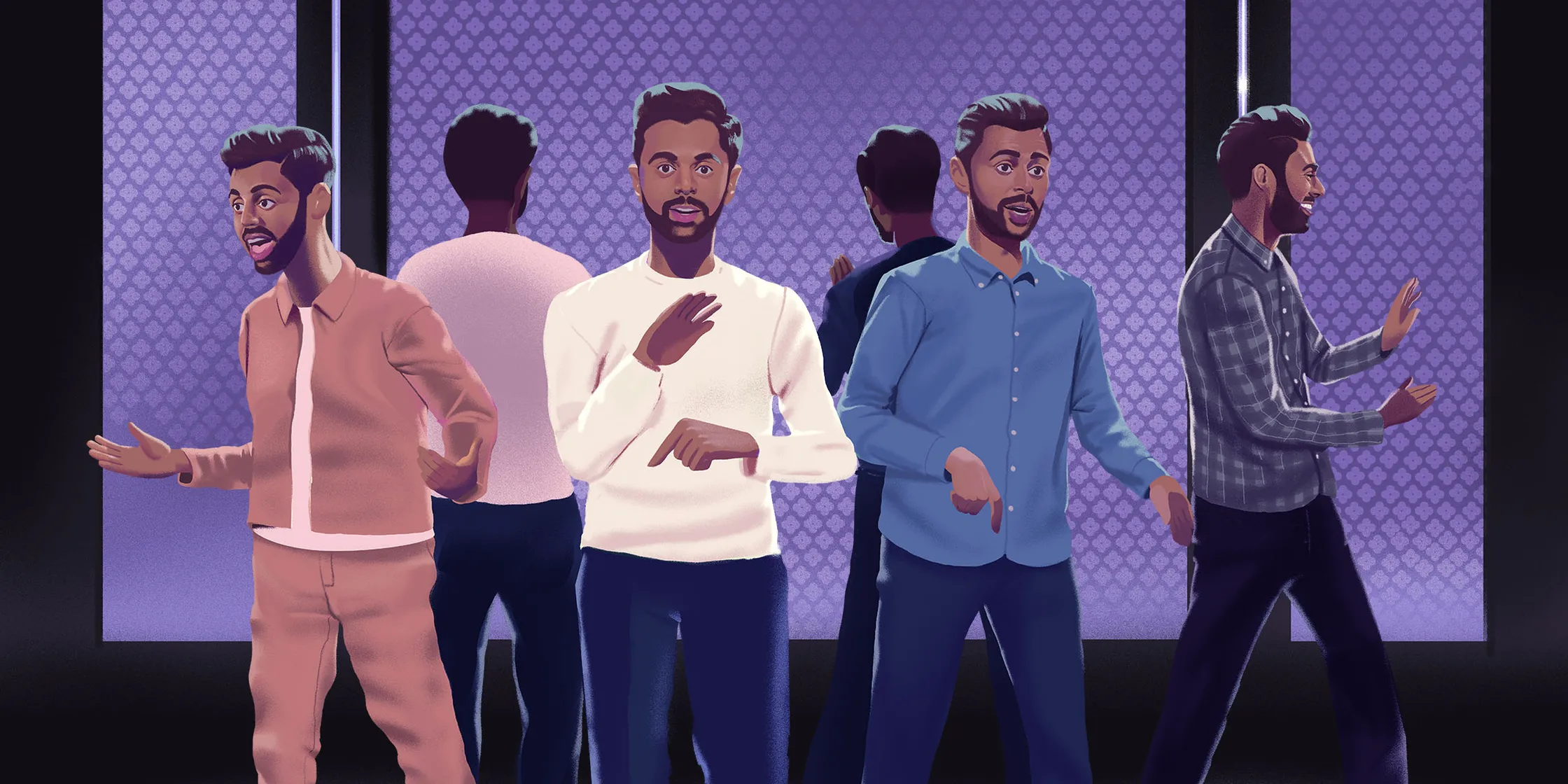 |
 Support Us
Support Us
Satyagraha was born from the heart of our land, with an undying aim to unveil the true essence of Bharat. It seeks to illuminate the hidden tales of our valiant freedom fighters and the rich chronicles that haven't yet sung their complete melody in the mainstream.
While platforms like NDTV and 'The Wire' effortlessly garner funds under the banner of safeguarding democracy, we at Satyagraha walk a different path. Our strength and resonance come from you. In this journey to weave a stronger Bharat, every little contribution amplifies our voice. Let's come together, contribute as you can, and champion the true spirit of our nation.
 |  |  |
| ICICI Bank of Satyaagrah | Razorpay Bank of Satyaagrah | PayPal Bank of Satyaagrah - For International Payments |
If all above doesn't work, then try the LINK below:
Please share the article on other platforms
DISCLAIMER: The author is solely responsible for the views expressed in this article. The author carries the responsibility for citing and/or licensing of images utilized within the text. The website also frequently uses non-commercial images for representational purposes only in line with the article. We are not responsible for the authenticity of such images. If some images have a copyright issue, we request the person/entity to contact us at satyaagrahindia@gmail.com and we will take the necessary actions to resolve the issue.
Related Articles
- The former RAW officer claims that Ex Muslim Vice President Hamid Ansari while serving as an Indian Ambassador to Iran exposed the RAW set-up in Tehran endangering the lives of RAW unit members
- We present a list of trickery, hypocrisy, and biases of the Islamist propagandist Rana Ayyub as she manages to embarrass herself again by infuriating netizens of Saudi Arabia
- Bajrang Dal's peaceful rally in Mewat (mini Pakistan) is painted panic mongering by Islamist Media
- 'Cricketers who married cousins' story published by Times of India included Virender Sehwag and his wife Aarti Ahlawat, who are actually not cousins - Also used the couple as the cover photo, completely misrepresenting facts
- NMA received outrage from Netizens for asking ASI to remove Ganesh idols from Qutub Minar complex to National Museum as it will remove the big evidence of Islamist vandalism: Ganesha is the prime god of Hinduism
- "Evidence Against Teesta Setalvad": She is arrested for false testimony in Gujarat riots and how Congress, Teesta Setalvad, Sanjiv Bhatt and Times of India colluded against Narendra Modi, and US Government regular interaction with the cabal
- "Creative without strategy is called ‘art.’ Creative with strategy is called ‘advertising": As per a new study from research group 'Light Collective', Digital Medical companies funnel sensitive data of patients with Facebook to help target advertisements
- "Modi hell-bent on re-creating the lost Hindu kingdom or Hindu Rashtra”: Propaganda of demonizing India over the fake narrative of ‘Muslim persecution’ set in motion again by International Toolkit
- In Amethi, a family's long-lost son returns as a sadhu after 22 years, igniting hope; but joy turns to shock as he's revealed to be an imposter, Md Nafees, claiming his math demands ₹11 lakh for 'his release', in a cruel scam exploiting families for money
- Mohammedan man taken prisoner for grooming and holding hostage a 15-year-old Hindu girl, claimed “We are in love for 7 years”: Kasganj, UP
- Dewan Bahadur saheb was made to quit as a Speaker because he wasn't a Muslim: Tragedy of a Christian leader who backed Pakistan’s creation
- Prayagraj School principal Bushra Mustafa asked nursery and UKG students to make Eid Mubarak video wearing Islamic dress, marks to be added in final exams: Hindu parents and groups objected, FIR filed
- Qatar-based Sheikh Eid Bin Mohammad Al Thani Charitable Association has been funding millions of dollars to organizations associated with the Wahhabi school of thought since 2008-2009: Earlier accused by the US also for assisting Al Qaeda
- Nupur Sharma untraceable: Maharashtra police stationed in Delhi for 5 days but can’t find her after multiple complaints against her following her so-called offensive statements against Prophet Muhammad, which triggered countrywide violence by Muslims
- If only India’s partition chilling wound was not enough, Gandhi did his last protest again only to blackmail India into giving 55 crores to Pakistan, dragged Hindu, Sikh refugees seeking shelter in mosques to die in cold: And we call him Mahatma, not for


















